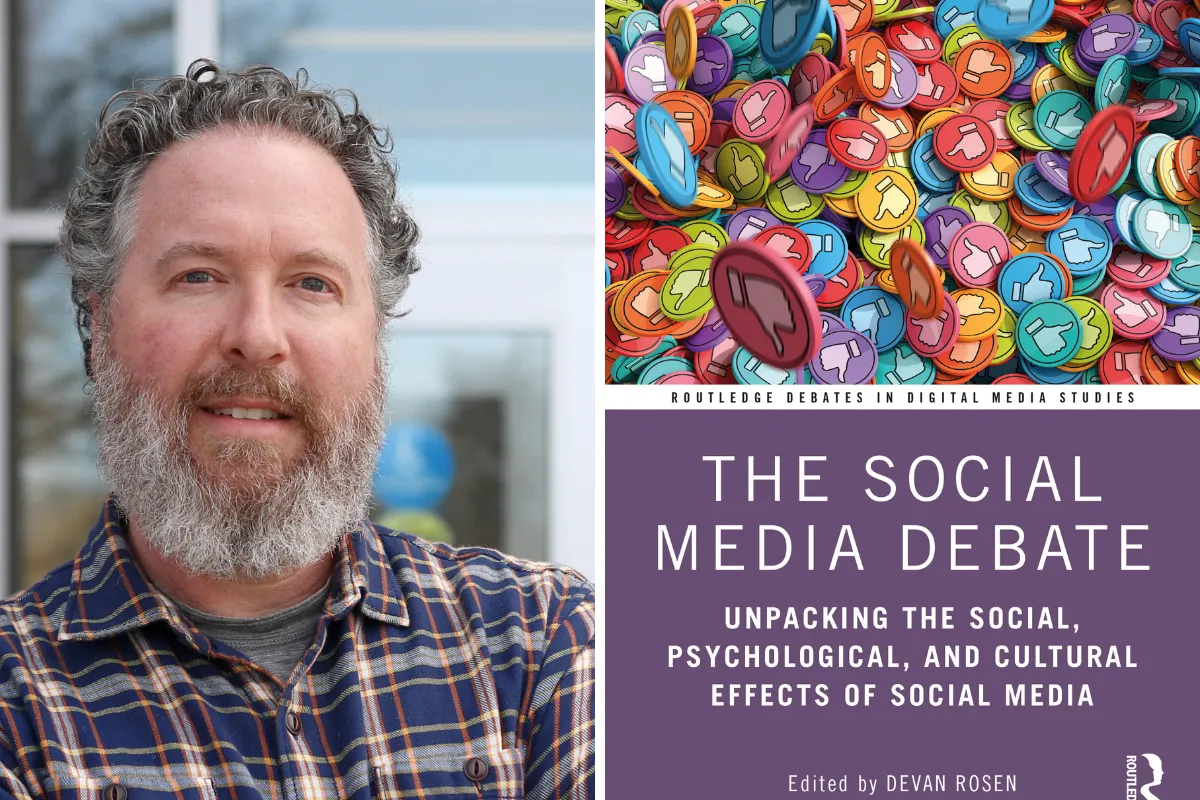During the last decade, social media has grown beyond a tool merely to connect with friends and family. Increasingly, a significant portion of the population uses social media not only as their main social outlet but also as their primary news source.
With this sea change in social media’s reach, Devan Rosen, professor of emerging media at Ithaca College, has watched as major social and political issues have risen to the forefront in the United States and across the globe.
Rosen’s work has put him in contact with people from around the world. The more people he spoke with, the more common themes began to emerge.
“I’d been interviewing people in Denmark, Finland, France, Turkey, Laos, Australia, Singapore, and many other countries,” he said. “People everywhere were dealing with the same issues: the explosion of misinformation, social media’s effects on health and well-being, and the impact of corporate relationships. Anywhere where people have their social and cultural connections coordinated through social media platforms, the same issues were replicating everywhere.”
The complexities of these issues form the crux of The Social Media Debate: Unpacking the Social, Psychological, and Cultural Effects of Social Media, a book Rosen edited that brings together voices such as Christian Fuchs, a social scientist and professor in Austria, and Joan Donovan, the research director of the Shorenstein Center on Media, Politics, and Public Policy at the John F. Kennedy School of Government at Harvard University.
By bringing in a chorus of different voices, the book draws on each person’s expertise.
“What I started with was a question: ‘What are the key, seminal issues?’” he said. “Then I reached out to experts to talk about their field, and asked them, ‘What do you want to say to people about those issues? What do you think are the most important things for people to know?’” The biggest challenge for Rosen became making sure that these various voices could be held together by a narrative thread throughout the book.
“One of those threads is the duality of how we’re using social media to connect to others and get information,” he said. “But on the other side is algorithmic control steered toward profit, and that there are actors who can manipulate those algorithms for their own nefarious gains.
“An important part of the conclusion is that the scientific community has always been a social safety net, whether that’s understanding things like climate change and natural support systems or social support systems,” Rosen continued. “It’s important that we come together to understand this. It is like the social version of climate change, but it’s happening at a much faster pace and is much better cloaked.”
